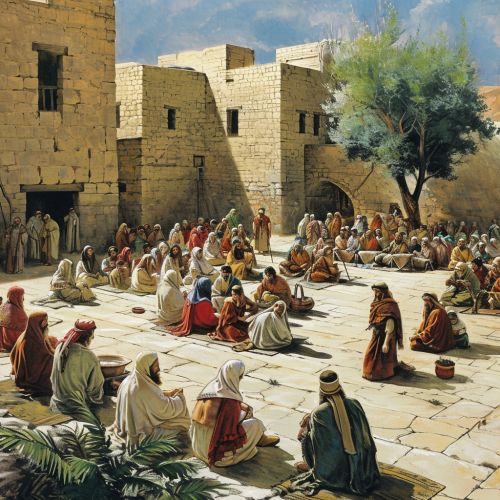Christianity in the Middle East
Origins and Early History
Christianity originated in the 1st century AD in the region that is now modern-day Israel, an area that was then part of the Roman Empire. The religion quickly spread throughout the Roman Empire and beyond, reaching Egypt within the same century. By the 4th century, Christianity had become the dominant religion in the region, replacing traditional Roman and Hellenistic religions and philosophies.


The spread of Christianity in the Middle East was facilitated by the existing network of Jewish communities and synagogues in the Roman provinces, as well as the region's extensive trade routes. The early Christian communities were often centered around synagogues, as Jesus and his disciples were Jewish and had initially spread their teachings to Jewish communities.
Byzantine Period
In the 4th century, the Roman Empire was divided into Eastern and Western halves, with the Eastern Roman (or Byzantine) Empire encompassing most of the Middle East. The Byzantine Empire was a stronghold of Christianity, with the Emperor Constantine I officially endorsing the religion and commissioning the construction of Christian churches throughout the empire.
During this period, numerous Christian sects emerged in the Middle East, including the Nestorians, the Monophysites, and the Jacobites. These sects often faced persecution from the Byzantine authorities, who endorsed the Chalcedonian Creed of the Council of Chalcedon and viewed these sects as heretical.
Islamic Conquests and the Middle Ages
The 7th century saw the Islamic conquests of the Middle East, which led to the gradual decline of Christianity in the region. Despite this, a significant Christian minority remained, particularly in Egypt, Syria, and Iraq. These Christian communities often had a degree of autonomy under Islamic rule, but were subject to the jizya tax and other restrictions.
During the Middle Ages, the Middle East was a major battleground in the Crusades, a series of religious wars between Christians and Muslims. The Crusaders established several Christian states in the Middle East, including the Kingdom of Jerusalem, but these were short-lived and had fallen by the end of the 13th century.
Ottoman Period and Modern Times
The Ottoman Empire, which ruled much of the Middle East from the 14th to the early 20th century, allowed a degree of religious pluralism and many Christian communities continued to exist. However, Christians often faced discrimination and periodic bouts of persecution.
In the modern era, the Christian population in the Middle East has been declining due to emigration, discrimination, and persecution, particularly in the wake of the Arab-Israeli conflict, the Lebanese Civil War, and the rise of Islamist groups such as ISIS.
Current Situation
Today, Christians constitute a minority in every Middle Eastern country, with the exception of Lebanon where they make up a significant minority. The largest Christian communities in the Middle East are found in Egypt, Syria, and Lebanon.
Despite their minority status, Christians have played and continue to play a significant role in the Middle Eastern society and politics. They have contributed to the region's culture, education, economy, and more. However, they also face challenges, including discrimination, political instability, and violence.
